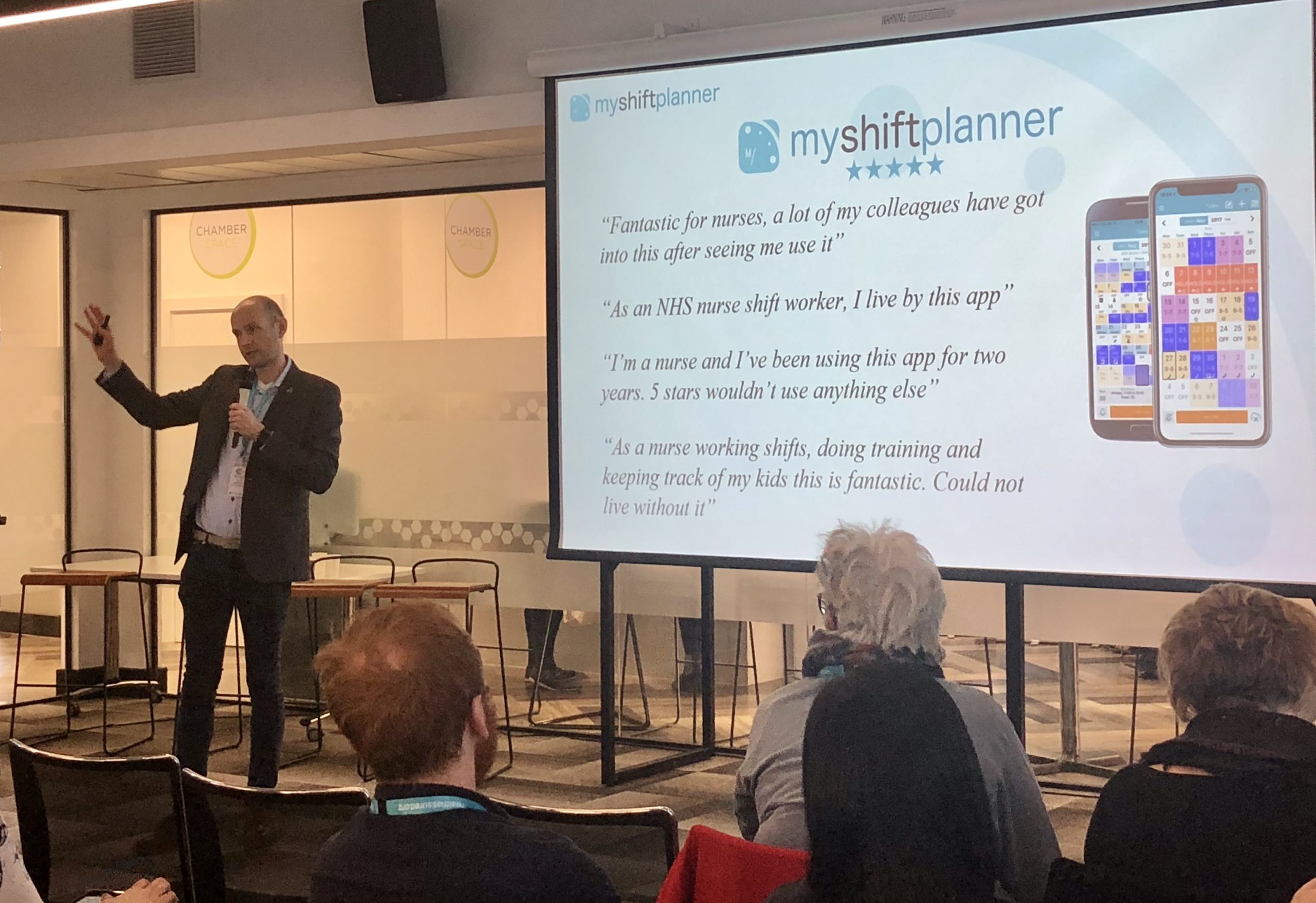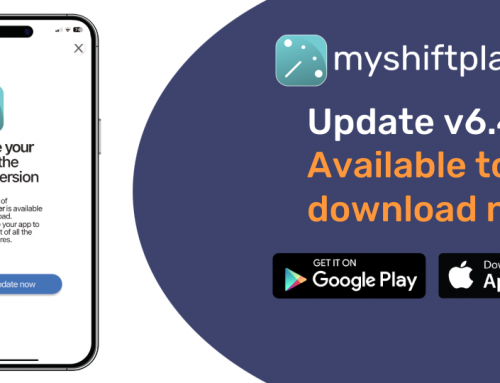Here’s the recent presentation our Managing Director, Chris Pimlott, gave at the Covenzis NHS Work Force Strategy Congress – Shaping the Future of Staffing, on 6th February 2020.
The Trials of Shift Work Relationships – A MyShiftPlanner Case Study
Today, I’d like to share with you a case study from one of our shift worker users.
This message came into our support team a couple of years ago. The message was from a lady we will call Sally. (I have changed the names to protect the innocent!)
Essentially, Sally told us that her husband was a shift worker, and they never got to see each other. It was causing a rift between them.

I suspect nobody is surprised by any of these types of comment. Anyone who has worked shifts, or managed shift workers, knows that this kind of issue is very common.
We see it very often with users. They tell us that shift working is very hard. It puts enormous strain on individuals, and families.
We have blogged about it before. Highlighting the Spill Over Effect, and all the various issues facing shift workers who are trying to manage their social lives alongside their working commitments.
This particular case of “Sally and Mark” demonstrates the impact unhealthy shift working practices can have. Not just on an individual, but importantly, on their family as well.
Doing some research, we found a lot of unsettling statistics…

In a nut-shell, shift working is a proven contributor to mental and physical health issues around the world. So clearly there’s a problem that needs to be addressed. But the question is, what can be done about it?
Time to get rid of shift work?
So what’s the solution? We could just stop shift working…?

Unfortunately, that really won’t work so well … unless nobody is sick over a weekend!
Ultimately, we know that shift working is essential in many industries. Even with greater automation, there will always be a need for people to work throughout the day and night.
This is especially the case in emergency services and healthcare. Where round-the-clock services are an absolute requirement. Patients need care 24 hours a day.
So, shift working is not about to go away.
How do you maintain a healthy shift team?
The key to delivering the services that are needed, with a healthy shift team, is understanding what the problem areas are and how to avoid them within the shift teams.
Going back to our case study, Mark would likely say that working irregular shifts, especially night shifts, is simply something he has to do.
Like many shift workers, he has very little say about when he is rostered to work. His employer needs to fill those shifts, so it’s driven by the need of the company he works for.
In effect, Mark is caught in the middle of two conflicting interests. The desire and need to spend time with his family, and the needs of his job and career.
This is where a number of the key problems originate. In Mark’s case, it’s where his relationship had started to break down and stress-related issues would almost certainly have followed as well.
His partner is upset that she doesn’t see him. But the need to earn a wage is pressuring him to comply with his work’s needs.
He’s caught in the middle and is left feeling out of control.

This is someone we hear time and again from our users, and why what we do is do important.
Get Back Control of Your Shift Work Life
MyShiftPlanner has been in the hands of shift workers for nearly 6 years. We like to think that we’ve been disrupting the shift worker app market for over 5 years by offering shift workers something that puts them in control of their work life balance
Initially, this happened by accident.
We originally developed our MyShiftPlanner app to help one shift worker regain control of his work/life balance. But before long became the leading shift working app for shift workers in the UK, which made us realise the severity of the problem.
We regularly hear stories from our users about how much they needed an app like ours to survive shift working.

Did we get a happy ending?
I’m sure you’d be keen to know how Sally and Mark got on…

Sally’s message went on to say that by being able to share her husband’s shifts she was able to plan their time away.
In essence, they both gained an element of control in a situation that felt completely out of control.
But, there’s an important twist in this story.
It wasn’t Mark who felt he needed to take control of his rota, it was his wife who needed to take control of Mark’s rota.
20% of our users aren’t shift workers. They are the families and friends of shift workers. Who want to be able to see their loved one’s rotas at a glance. So that they can help them plan their lives.
Shift Scheduling Affects More than just Your Team
The impact of poor scheduling is much bigger than health and wellbeing issues for the members of your team. It is the impact it has on their personal life, their families, friends and other loved ones.
It’s time for shift managers to look wider than the payroll
To create a healthier, more effective shift working team you need to look wider than those on your payroll. And to give your team the tools they need to better manage their shift work lives.






